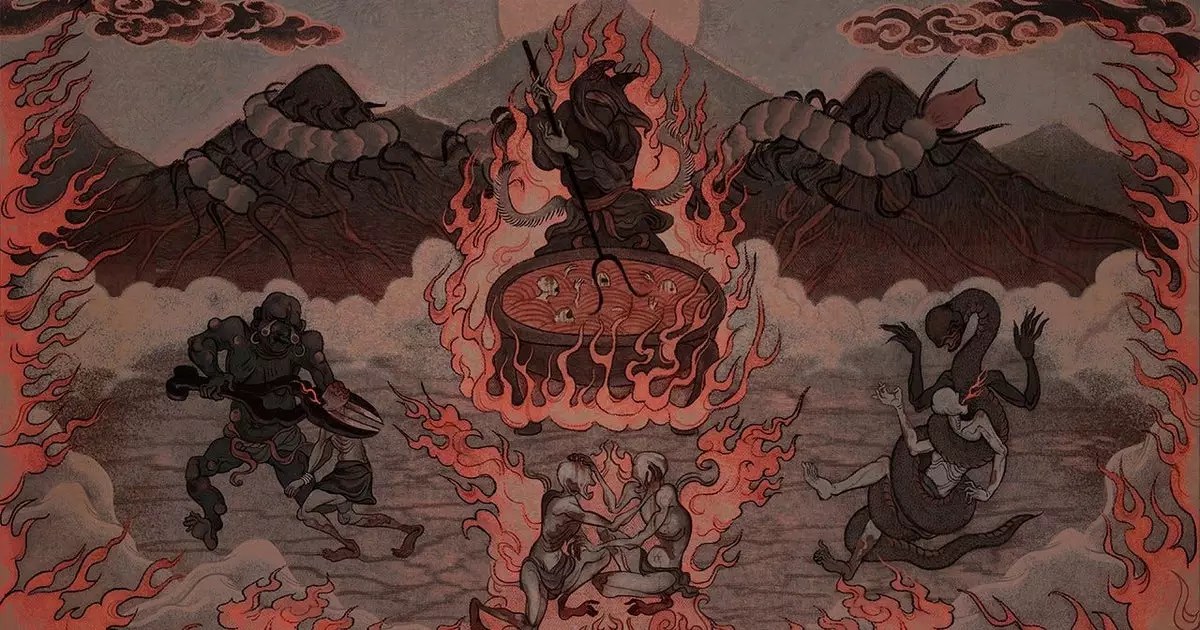In the gaming landscape where horror titles often resort to jump scares and mindless gore, “Labyrinth of the Demon King” stands apart as a haunting experience that purposefully revels in its own squalor. The game melds the psychological despair of “Silent Hill” with the grim atmosphere of “Amnesia: The Dark Descent,” delivering players into a world that feels palpably fraught with dread. Set against the backdrop of a bleak, mythical feudal Japan, it captures a time steeped in superstition and horror, where every shadow might conceal a lurking threat.
As players traverse this murky environment, the game exploits the terror that arises from the ambiguity of its setting. It’s not just that the landscape is unsettling; it is an ever-evolving labyrinth where doom seems just a corner away. Players find themselves embroiled in a quest to confront a malevolent yokai—a task that unfolds amidst incessant threats and a fragile grasp on reality. As I delve into the game, I can’t shake the bone-deep feeling of dread that it evokes; it feels as though the very air tingles with promise of danger.
Challenging Combat and Resource Scarcity
The combat mechanics are particularly noteworthy, diverging from the trend of fast-paced, reflex-driven play. Instead, “Labyrinth of the Demon King” employs a stamina-based system reminiscent of the “King’s Field” RPG mechanics. Each encounter becomes a strategic exercise, testing players’ wits as they maneuver through limitations while also confronting grotesque adversaries—grimy entities whose very existence seems to symbolize decay.
Equipped with a broken katana, some not-so-sanitary bandages, and a bottle of sake, resource management becomes crucial. Players are required not just to engage in combat but to evaluate their situation constantly; every swing of the blade risks exhausting precious stamina, every run risks incurring critical damage. This intense engagement with scarcity and survival builds an overwhelming atmosphere of tension—one that feels rewarding but punishing at the same time. Amidst the mayhem, the absurdity of using cooking equipment to combat supernatural threats provides a gallows humor that is unexpected but delightfully engaging.
Desperation Amidst the Monstrous
The narrative arc mirrors overwhelming despair. The house my character explores is a cavern of murky threats, filled with lurking terrors and grotesque creatures—each described vividly and hauntingly. The descriptions of these adversaries bring to mind a grotesque gallery of horror. The “whispering fungus” and “screechy little filthbastards” serve not just as obstacles but as manifestations of the protagonist’s deteriorating mental state. They reflect the overarching themes of filth and decay, ensnarled in a setting that feels paradoxically alive yet deathly still.
As I navigate this repulsive territory, the player must take refuge in cupboards and plan attacks against vermin that threaten to sap my already dwindling health. There’s an unsettling intimacy in these mechanics; players aren’t just fighting monsters; they’re surviving an acute sense of disillusionment within a world that feels alive but treacherous. When I stumble upon a self-referential blacksmith locked away, the idea of seeking repair for a broken weapon feels like a symbolic pursuit. My character’s desperate hope of finding a savior in this desolate place renders the experience all the more poignant.
A Lament for Horror Atmosphere
Despite its rough edges, “Labyrinth of the Demon King” encapsulates the essence of an era in gaming that is often overlooked—an ear to the past, a bow to atmospheric storytelling in an age inundated with polished aesthetics and shallow scares. The visual design, characterized by a dithering aesthetic combined with elongated cut scenes, conjures memories of early horror experiences, reminiscent of a time when horror meant much more than overt shock value.
Players will find themselves wandering through darkened rooms, examining floor maps, and navigating puzzles that pull them deeper into the game’s disorienting embrace. The deliberate pace can frustrate those accustomed to the rapid-fire action of modern titles, yet it serves as a deliberate commentary on the nature of horror—true terror is often best experienced in the slow, creeping methodical revelations that wear down the psyche.


Leave a Reply